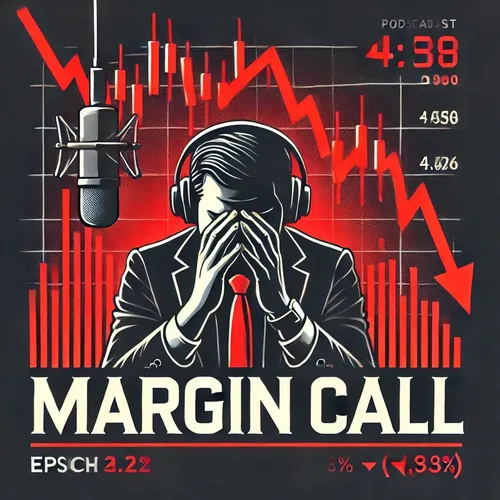Margin Calls: Vital Alerts in Leveraged Trading, Urging Action to Avoid Liquidation
- Author
- Quiet. Please
- Published
- Mon 25 Aug 2025
- Episode Link
- https://www.spreaker.com/episode/margin-calls-vital-alerts-in-leveraged-trading-urging-action-to-avoid-liquidation--67503892
Margin calls are a fundamental part of leveraged trading and act as a warning signal when the equity in a listener's brokerage account falls below the minimum required to support open positions. As Exness explains, a margin call does not immediately close positions but serves as a crucial alert, urging the trader to add more funds or reduce their exposure to avoid automatic liquidation. If no action is taken and the equity continues to deteriorate, brokers activate the stop-out level, forcibly closing positions to contain further losses. This dynamic is especially important in environments with high volatility, such as futures and cryptocurrency markets.
When listeners hold short positions, they are essentially borrowing an asset, selling it on the open market, and hoping to buy it back at a lower price later. While the profit potential in shorting can be substantial during declines, the risk is theoretically unlimited—if the asset price rises, losses can snowball. Short positions are particularly vulnerable to rapid price surges; this can trigger what is known as a short squeeze. In this scenario, soaring prices force short sellers to buy back shares to cover their positions, adding further upward pressure and creating a feedback loop that can devastate those with bearish bets.
According to Ainvest, the risks for short sellers in bullish markets have escalated dramatically, especially in crypto. During the July 2025 Bitcoin rally, more than a billion dollars in short positions were liquidated in just 24 hours. The liquidations were not solely due to market momentum—margin calls played a decisive role. When the price of Bitcoin shot past $118,000, short sellers with leveraged bets found themselves unable to meet heightened margin requirements and were forced to buy back into a rising market, pushing prices still higher. Ethereum saw a similar pattern, wiping out hundreds of millions in short positions.
What marks the current landscape is the psychology behind margin calls and short positions. Too often, traders ignore initial warnings and hope for market reversals, delaying the closure of losing positions. This hesitation deepens losses and when the margin call finally comes, the forced liquidations can drive asset prices even further in the direction opposite to what the short sellers expected. Behavioral research, summarized by Ainvest, shows that many players overestimate their control and undermine risks, falling victim to the “illusion of control” and disposition effect—waiting too long to close losing trades while rushing to lock in gains prematurely.
It is important to remember that margin trading amplifies risk, as emphasized by Webull and TradingView. When losses begin to exceed the margin deposited, the broker demands additional funds in a margin call. Failing to respond leads to forced liquidation, which in fast-moving markets may be executed at unfavorable prices, compounding the pain for the trader.
In highly leveraged markets like crypto futures or commodities, margin calls can set off a chain reaction. One trader’s liquidation triggers price moves, which forces additional margin calls for others, creating a domino effect. This feedback mechanism was starkly visible during the latest Bitcoin surge and in the broader futures landscape, where short sellers were wiped out by rapid reversals and liquidity vacuums above key resistance levels.
Short positions in trouble often reflect not only poor market timing but also insufficient risk management. Protective measures like stop-loss orders, position sizing, and disciplined risk strategies are essential to survive periods of unusual volatility. Ultimately, while margin enables substantial profits, it can just as easily magnify losses, and those shorting the market must always be prepared for sudden calls to shore up their accounts—or else participate in the forced buying that drives the next leg of a...
